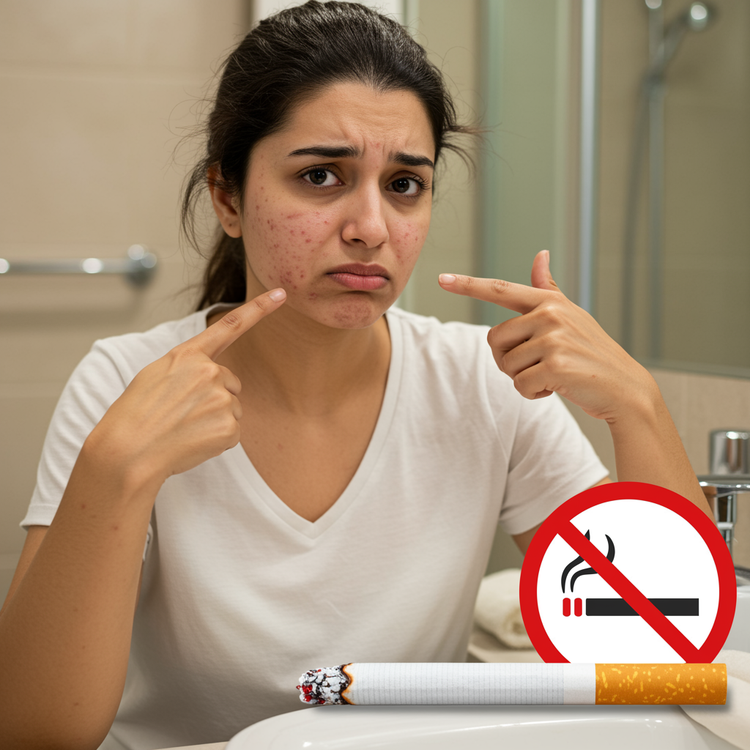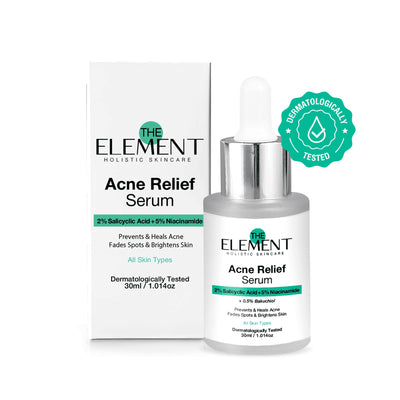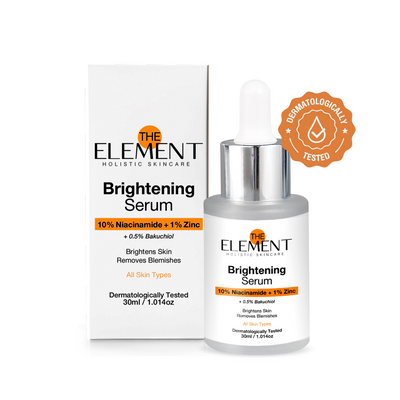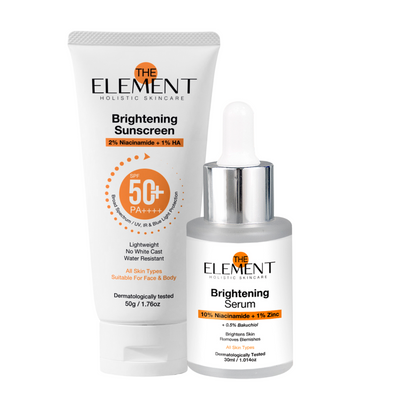Will Smoking Cause Acne? The Truth About Smoking and Your Skin

Introduction
If you’ve ever wondered, will smoking cause acne or can smoking cause acne, you’re not alone. With millions of people worldwide struggling with acne and many also smoking, it’s natural to question if there’s a link between the two. In this article, we’ll explore the relationship between smoking and acne, what the latest research says, and how smoking affects your skin overall. Whether you’re a smoker, ex-smoker, or simply curious, this guide will help you make informed decisions for your skin health.
Does Smoking Cause Acne? What the Research Says
The Science: Can Smoking Cause Acne?
Multiple studies have investigated whether smoking can cause acne. While the relationship isn’t as straightforward as with other skin issues, evidence suggests that smoking can indeed contribute to certain types of acne, especially in adults.
A 2009 study published in Dermatology found that adult female smokers were more likely to develop non-inflammatory acne (known as "smoker’s acne") compared to non-smokers. This type of acne is characterized by blackheads and blocked pores rather than red, inflamed pimples.
How Does Smoking Affect the Skin?
Smoking introduces thousands of chemicals into your body, many of which are harmful to your skin. Here’s how smoking can impact your skin and potentially cause acne:
- Reduces Oxygen Supply: Nicotine constricts blood vessels, reducing oxygen and nutrient delivery to the skin, which can slow healing and worsen breakouts.
- Increases Inflammation: Smoking triggers inflammation throughout the body, including the skin, making it more prone to irritation and acne.
- Alters Sebum Production: Some research suggests that smoking can increase sebum (oil) production, a key factor in acne development.
- Impairs Collagen Production: Smoking damages collagen and elastin, leading to premature aging and making the skin less resilient against acne scars.
Expert Insight
Dr. Rachel Nazarian, a board-certified dermatologist, explains:
"Smoking doesn’t just age your skin—it can also worsen acne by increasing inflammation and impairing the skin’s natural healing process. Quitting smoking is one of the best things you can do for your skin’s health and appearance."
Will Smoking Cause Acne for Everyone?
Not everyone who smokes will develop acne, and not all acne is caused by smoking. Genetics, hormones, diet, and skincare habits all play significant roles. However, if you’re prone to breakouts, smoking can make them worse or harder to treat.
Who Is Most at Risk?
- Adult women: Studies show a higher prevalence of non-inflammatory acne among female smokers.
- People with oily skin: Smoking may exacerbate oiliness, leading to more clogged pores.
- Individuals with slow-healing skin: Smoking impairs wound healing, making post-acne marks last longer.
The Broader Impact: Smoking and Other Skin Problems
Smoking doesn’t just affect acne. It’s linked to a range of skin issues, including:
- Premature wrinkles and sagging
- Uneven skin tone and dullness
- Delayed wound healing
- Increased risk of skin infections and certain skin cancers
For more on how smoking affects your skin, see the American Academy of Dermatology’s guide.
Can Quitting Smoking Improve Acne?
Yes! Many people notice clearer, healthier skin after quitting smoking. The body begins to repair itself almost immediately, improving blood flow and reducing inflammation. Over time, your skin’s natural healing processes can help fade acne scars and prevent new breakouts.
Tips for Clearer Skin After Quitting Smoking
- Adopt a gentle skincare routine: Use non-comedogenic products and avoid harsh scrubs.
- Stay hydrated: Water helps flush toxins and keeps skin plump.
- Eat a balanced diet: Focus on fruits, vegetables, and whole grains to support skin health.
- Consult a dermatologist: For persistent acne, professional treatments like topical retinoids or chemical peels may help.
Conclusion
So, will smoking cause acne? The answer is: smoking can contribute to certain types of acne, especially in adults, and generally worsens skin health. If you’re struggling with breakouts, quitting smoking is a powerful step toward clearer, healthier skin. Remember, your skin reflects your overall health—making positive lifestyle changes benefits you inside and out.
Frequently Asked Questions (FAQ)
Q: Can smoking cause acne even if I have clear skin now?
A: Yes, smoking can increase your risk of developing acne over time, even if your skin is currently clear.
Q: Does vaping or e-cigarettes cause acne like smoking?
A: While research is still emerging, some ingredients in e-cigarettes may also trigger inflammation and skin issues, though likely less than traditional cigarettes.
Q: How long after quitting smoking will my skin improve?
A: Many people notice improvements within weeks, but significant changes may take several months as your body heals.
Q: Are there any skincare products that help smokers’ skin?
A: Look for products with antioxidants (like vitamin C), gentle exfoliants, and non-comedogenic moisturizers. Consult a dermatologist for personalized advice.
Q: Is “smoker’s acne” different from regular acne?
A: Yes, smoker’s acne is often non-inflammatory, with more blackheads and blocked pores rather than red, inflamed pimples.
Ready to take the next step for your skin?
If you’re considering quitting smoking or want to improve your skincare routine, consult a dermatologist for expert guidance. Your skin—and your whole body—will thank you.



